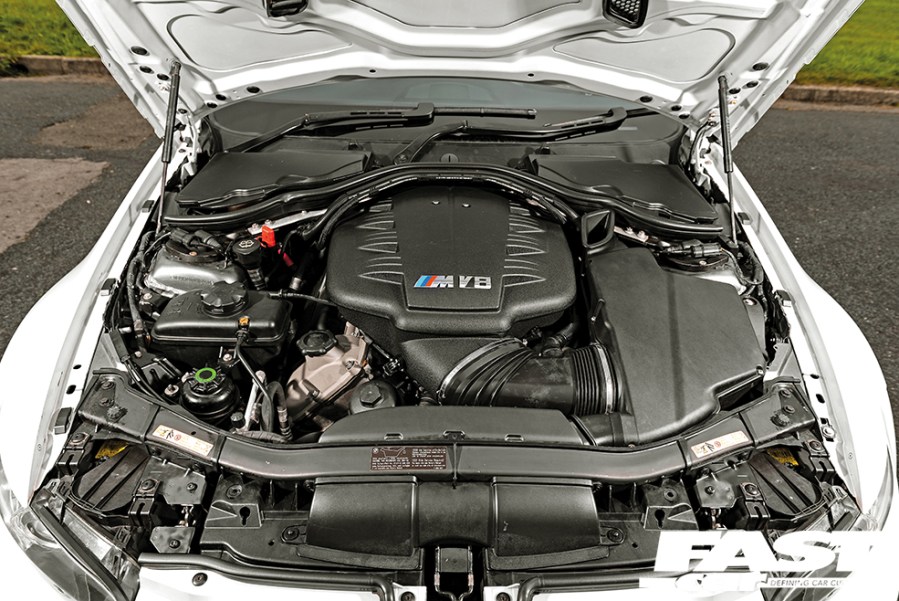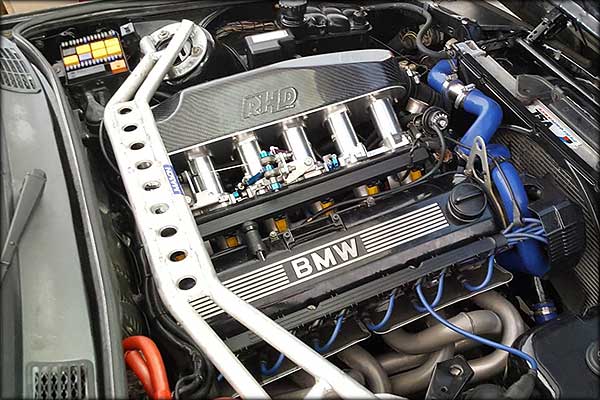A Comprehensive Overview to Comprehending BMW Engine Specifications
Wiki Article
Unveiling the Intricacies of Next-Generation Power Units: a Deep Study Advanced Engine Designs and Innovations
In the realm of automotive design, the unrelenting search of performance, sustainability, and performance has moved the evolution of power units to extraordinary elevations. As we base on the precipice of a new era in transportation, the intricacies of next-generation engine layouts bid us to explore the cutting-edge technologies and technologies that guarantee to redefine the driving experience. From sophisticated materials that press the borders of resilience and weight decrease to advanced turbocharging and turbo charging systems that raise power outcome to new degrees, each part of these power systems holds an essential to unlocking the future of auto design. Delving much deeper into the realms of discharge control, intelligent engine administration systems, and the horizon of power device growth, we discover ourselves on the cusp of a makeover that assures to improve the landscape of movement as we understand it.Development of Engine Products

The shift towards advanced engine materials has likewise allowed engineers to design engines with higher power outputs while preserving gas effectiveness requirements. The use of light-weight products decreases the general weight of the engine, leading to enhanced gas economic climate and lower exhausts. Additionally, improvements in products innovation have actually permitted better thermal management within engines, resulting in increased reliability and long life.
Turbocharging and Supercharging Technologies
Exactly How do Turbocharging and Supercharging Technologies reinvent engine efficiency and performance in modern vehicles? Supercharging and turbocharging are technologies that considerably enhance engine performance by increasing the amount of air consumption into the combustion chamber. Turbocharging attains this by utilizing a generator driven by exhaust gases to pressurize the consumption air, while turbo charging makes use of a belt- or chain-driven compressor to achieve the same result.
These modern technologies allow smaller, extra fuel-efficient engines to generate power equal to larger ones, called downsizing. Forcibly more air into the cyndrical tubes, turbocharging and turbo charging enhance combustion effectiveness, causing enhanced horse power and torque outcome without a substantial increase in engine size. This leads to far better velocity, hauling capability, and general driving performance.
Additionally, turbo charging and turbocharging add to boosted fuel performance by enabling the use of smaller engines that eat less gas under normal driving problems - bmw engine. This mix of improved performance and efficiency has actually made turbocharging and turbo charging integral elements of several modern-day engine styles
Discharge Control and Environmental Effect
With enhancing worldwide problems regarding air quality and ecological sustainability, the application of discharge control technologies in cars plays a critical function in lowering damaging toxins launched into the ambience. Modern automobiles are equipped with advanced emission control systems that assist lessen the ecological effect of automobile operations. Catalytic converters, as an example, are developed to transform harmful gases such as carbon monoxide, nitrogen oxides, and hydrocarbons into much less damaging substances like co2 and water vapor.Moreover, developments in engine innovation, such as the assimilation of exhaust gas recirculation systems and discerning catalytic reduction, have actually significantly added to reducing emissions. These technologies work in tandem to enhance combustion performance and minimize the release of damaging contaminants into the air. In addition, the advancement of crossbreed and electric automobiles stands for a critical step in the direction of minimizing the general environmental footprint of the transport sector.
Intelligent Engine Management Equipment

Furthermore, these systems enable lorries to fulfill stringent discharges standards without endangering efficiency, giving a more eco-friendly driving experience. The integration of artificial intelligence and equipment knowing abilities in engine management systems proceeds to press the boundaries of what is feasible, bring about additional enhancements in efficiency, integrity, and total vehicle efficiency. bmw engine. As auto innovation developments, smart engine monitoring systems will play a vital duty fit the future of transportation towards an extra efficient and sustainable direction
Future Trends in Power Device Development
As intelligent engine monitoring systems pave the means for improved control and optimization in contemporary vehicles, future trends in power unit growth are poised to redefine the landscape of auto propulsion modern technologies. These alternate power sources use enhanced efficiency and efficiency while aligning with strict environmental guidelines.An additional substantial pattern is the assimilation of innovative products and producing techniques. Lightweight products such as carbon fiber and aluminum are being utilized to reduce overall car weight, enhancing gas performance and performance. Additionally, improvements in 3D printing and additive production are making it possible for the production of complicated engine components with greater accuracy and sturdiness.
Additionally, artificial knowledge and artificial intelligence are playing a critical function in maximizing power system performance. These innovations enable real-time monitoring and adaptive control, leading to a lot more efficient and trusted power delivery. On the whole, future trends in power system development are geared in the direction of efficiency, sustainability, and effectiveness, driving the automobile sector towards a new age of propulsion technologies.

Final Thought
To conclude, the advancements in engine products, turbocharging, emission control, and intelligent monitoring systems have actually led the way for next-generation power systems. These innovations have not only better performance and effectiveness however also minimized ecological impact. As modern technology remains to progress, future fads in power unit advancement are most likely to focus on additional boosting sustainability and optimizing power outcome. The elaborate styles and technologies in modern engines showcase the recurring advancement of automotive modern technology.Exploring the progressive developments in engine materials has actually been pivotal in enhancing the performance and efficiency of modern engines. Over the years, the evolution of engine materials has helpful site played a critical role in pushing the boundaries of what engines can achieve.The change in the direction of progressed Continue engine products has also enabled engineers to design engines with greater power results while keeping gas performance criteria.The execution of smart engine administration systems in contemporary cars has revolutionized the way engines are controlled and maximized for efficiency and effectiveness. By collecting data in real-time and assessing it with advanced algorithms, smart engine monitoring systems can adjust to driving styles, ecological aspects, and engine wellness to take full advantage of power outcome while minimizing gas usage and emissions.
Report this wiki page